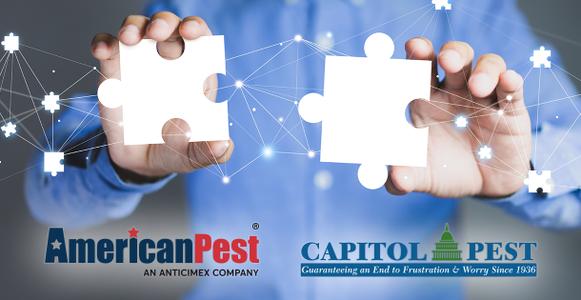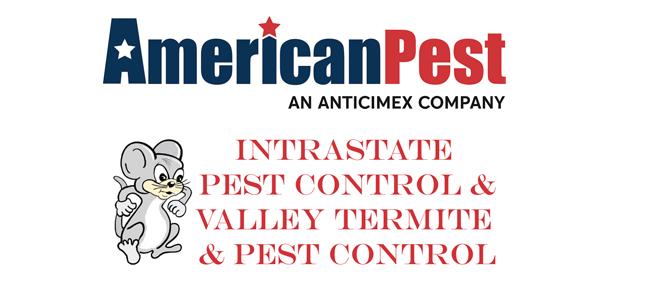
American Pest Acquires Capitol Pest
10/01/2021
Fulton, MD, September 30, 2021—American Pest, the leading provider in modern, preventive pest management throughout Maryland, Washington D.C....
READ MORE >
The DC Council unanimously passed the Wildlife Protection Act (B18-498) last week, which puts into effect some of the nation’s most stringent regulations to enforce the fair treatment and removal of DC’s pest populations.
Proposed by Council Member Mary Cheh, and backed by the Washington Humane Society, the bill seeks to offer protections for the District’s pests by expanding the definition of wildlife to include raccoons, foxes, bats, possums, groundhogs, skunks, and certain types of rodents like squirrels, moles, and voles. Commensal rodents (Norway rats, roof rats, or the common house mouse) are not included in the bill’s new protections. Feral cats will still be treated in accordance with the Animal Care and Control Act of 1979, which requires the animals to be trapped, neutered, and returned or adopted.
Cheh’s language adaptation means big changes for the pest and wildlife control industries in order to ensure humane animal management practices are in effect in the District.
The bill affects the entire process of removing pests from residential or commercial properties. Glue traps and snap traps are only to be used for commensal rodents. The use of leg-hold, body-gripping, or body-crushing traps, snares, or harpoon-type traps to manage wildlife is prohibited. The use of toxicants against pigeons, European starlings, or house sparrows is forbidden, and may only be used on other species of pests when there is no other reasonable method to control the animal.
Also changing is the process of relocating animals. Pest family units are not to be separated, and injured animals are to be taken to a rehabilitation center and eventually released to a “safe location,” where their presence will not be an issue.
This new legislation only applies to licensed pest management and wildlife control companies that operate in the District of Columbia, not homeowners or property owners.
For 85 years, American Pest has maintained a position of offering ethical pest control services, which is important for everybody. Common pest species like rats and mice are known to be hosts to fleas and ticks that spread diseases like Lyme disease and the hantavirus.
But there are concerns about how these new laws will affect the pest control industry’s ability to provide its essential services to the District.
Only certain pest animals are protected by the bill, which means that the use of a glue trap or snap trap to catch a house mouse could turn into a violation of the Wildlife Protection Act if it traps a field mouse or chipmunk. The new relocation requirements also pose issues, as it is already illegal to transport wild animals across state lines, and finding a relocation area for the animal where it wouldn’t become a nuisance again would be difficult. Not to mention the likelihood of an increase in prices for pest and wildlife control services in the District after implementing these new procedures.
American Pest is glad to see the DC Council take interest in pest and wildlife control affairs, although we fear that this piece of legislation has not been developed with the best interests of our industry or our customer base in mind. We have been committed to delivering quality pest control services since 1925, and we look forward to continuing our services to the DC, Maryland, and Northern Virginia areas. For more information, please contact us today.

10/01/2021
Fulton, MD, September 30, 2021—American Pest, the leading provider in modern, preventive pest management throughout Maryland, Washington D.C....
READ MORE >

10/01/2021
October is Breast Cancer Awareness Month, the perfect time to raise awareness about this disease. Did you know breast cancer is the ...
READ MORE >

03/19/2021
Fulton, MD, March 18, 2020—American Pest, the Baltimore-Washington area’s leading provider in modern, preventive pest management, acqui...
READ MORE >

12/24/2020
Fulton, MD, December 1, 2020—American Pest, the Baltimore-Washington area’s leading provider in mode...
READ MORE >

Protect your home and family from nuisance and potentially damaging pests with a Preferred Care home pest control plan. Starting at $49/month

Don't let the bed bugs bite a second longer. Contact American Pest for the most comprehensive bed bug control in the industry. Learn More

Our certified rodent control pros will put an end to your frustration by getting rid of rats and mice inside your home. Learn More

Say goodbye to wood-destroying termites in your home when you contact American Pest for expert termite control. Learn More

Trust American Pest to deliver professional backyard tick control services that are guaranteed to get results. Learn More

Don't spend the warm-weather season indoors, find out how American Pest's professional treatments get rid of mosquitoes. Learn More
Fill out the form and recieve feedback in less than 5 minutes. For immediate service please call.